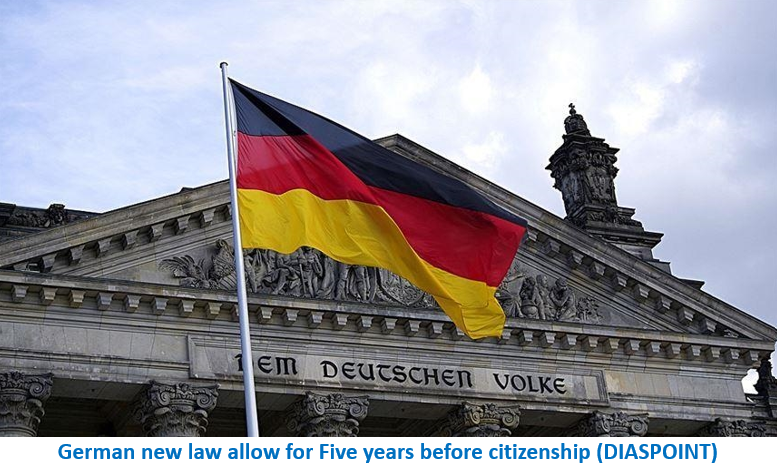New law makes Naturalisation easier in Germany
Post By Diaspoint | January 29, 2024

The federal parliament has passed a law to make it easier for foreign residents to become German nationals. The new law on citizenship, provides for faster naturalisation. Furthermore, anyone applying for a German passport will no longer have to give up their previous nationality. For people who are dependent on state aid, however, access to citizenship is made more difficult.
The Bundestag passed the amendment to the citizenship law on Friday. In a roll-call vote, a majority of MPs voted in favour of the reform. Of the 639 votes cast, 382 were in favour and 234 against, with 23 abstentions. The SPD, Greens and FDP parliamentary groups voted in favour of the changes, while the CDU/CSU and AfD voted against. The non-attached MPs, most of whom belong to the Left Party or the Sahra Wagenknecht Alliance, abstained.
The new law provides for the following important changes:
- The period of residence in Germany required for naturalisation is reduced from the current eight to five years. In the case of “special integration achievements”, naturalisation should be possible after just three years. This is the case if someone is involved in voluntary work or can demonstrate particularly good educational, vocational or professional achievements.
- Multiple nationalities are to be accepted. Anyone who naturalises in Germany will no longer have to give up their previous citizenship. Previously, this only applied to a certain group of people.
- For people who belong to the so-called guest worker generation, written language certificates at B1 level are to be waived. Instead, it should be sufficient if they can communicate orally in German “without significant problems in everyday life”. This is intended to honour the lifetime achievements of this generation, for whom there were no language courses at the time they came to the country. The obligation to take a naturalisation test also no longer applies. This regulation should also apply to contract workers in the former German Democratic Republic (defunct East Germany).
Read More from original source
